ALLi partner member Alison Jack, who is a professional editor, shares writing advice that she wishes she'd known when she was writing her first book , Dory's Avengers.
Her top tips will boost the confidence of anyone at the start of the self-publishing process – and plenty who have progressed beyond novice status or who are trade-published. (Interesting to note, too, that this professional editor also hired an editor for her own work – another sound piece of advice!)
When I was writing my debut novel, I knew nothing about the publishing process and scoured the Internet for advice. I found it by the bucketload, most of it contradictory. This obviously wasn’t much help, but over the years I have managed to sort the wheat from the chaff. I hope my experiences, both good and bad, will be of help to other new authors.
Writing Your Book
Apart from the basics: grammar rules, punctuation, spelling and sentence construction, there are no rules for writing a book. If someone tells you there are, ignore them. Perhaps you’ve heard of the author voice. This is unique to each individual author. Don’t worry if you make mistakes, your editor (me, for example – cue best professional smile) will help you sort them out. The most important thing from your point of view as an author is that nothing stifles your voice. Allow your writing to flow.
The following list will give you a few hints, especially if you’re writing fiction, but I want to stress they are guidelines, not rules. Some are things I’ve learnt from writing my own novel, others come from my experiences as a copy-editor.
- Try to avoid irrelevant storylines, although if a few sneak in a good editor will highlight them.
- In real life you get to know the people you meet gradually, so think of introducing your characters in the same way. A mistake I made was naming too many characters in the opening pages of my book. A lot of these characters turned out to be quite minor, and my poor readers wasted time trying to remember them all. No character, not even the lead character, benefits from a huge introduction on page one. It will leave your readers’ heads whirling, and they’ll forget most of the details. If your protagonist is in her twenties, pretty and called Jane, that’s all you need to say to begin with. Her outgoing personality, horse riding expertise and dedication to Chelsea Football Club (or whatever) will become apparent as the story progresses.
- Only you can discover whether your natural writing style is to plot each stage of the story carefully or see how it pans out. I am a pantser, but I have edited excellent work by plotters. Whichever style suits you is the correct style, and don’t let anyone tell you it’s not!
- Prologue – do you really need one? My debut novel’s prologue has regularly been slated as the weakest part of the book; some critics even said they didn’t think they were going to enjoy the book until they got to chapter one. Everything introduced in the prologue became apparent as the story progressed anyway. Lesson learnt. Book number two will be prologue free.
- Epilogue – you almost certainly don’t need one. I originally included an epilogue in my book because, despite the story coming to its natural conclusion in the final chapter, I found it very difficult to let go. Luckily a friend read the epilogue and hated it, and I’d scrapped it before sending the manuscript to prospective publishers. I’ve yet to read an epilogue that adds anything to a story, so if you feel inclined to write one please question your reasons for doing so.
- Try not to be too wordy. Question every adverb and adjective – do they enhance the sentence? Are you using complicated words when simple ones will do? Do you have a favourite word or phrase you repeat over and over again? Your editor should point these out if so, but do try to limit them. One of my favourite phrases was ‘incandescent with rage’. If I’d been given free rein, my book would have been seething (literally!) with furious characters, but thanks to my editor the phrase only appeared once, thus guaranteeing it maximum impact.
- In dialogue, it soon becomes evident which character is speaking at any one time. The words spoken often show who is speaking and what mood they’re in so there’s no need to tell the reader, and if you haven’t yet been told it’s better to show rather than tell, you will be!
- Try not to overuse certain words. ‘Just’, ‘only’, ‘again’, ‘back’ and ‘also’ are favourites. Your editor will help point these out.
- Only use ‘started to’ or ‘began to’ if the action which follows is not going to reach its natural conclusion.
- Are you going to write in UK or American English? Decide on one and be consistent.
- Are you going to write in past or present tense? Ditto previous point.
- If you’re writing in the first person, beware of suddenly switching to the second person. For example: ‘I was working in my shop, and it was really busy. You couldn’t stop for a second or the customers would complain you were going too slow’ is a tad confusing.
Your editor will point out and/or correct all of the above, but the tidier your manuscript is when you send it off for editing the quicker and cheaper the process will be. Hey, I’m doing myself out of work here! Moving swiftly on… Good luck with your writing, and I wish you every success.
#TopTips and #writingadvice for beginners by @AlisonJack66 https://selfpublishingadvice.org/writingtipsforbeginners/ Click To TweetOVER TO YOU Would you like to share any writing tips that you wish you'd known when you started out? Or are you just starting out and have some specific questions you'd like answered? Join the conversation via the comments box below!

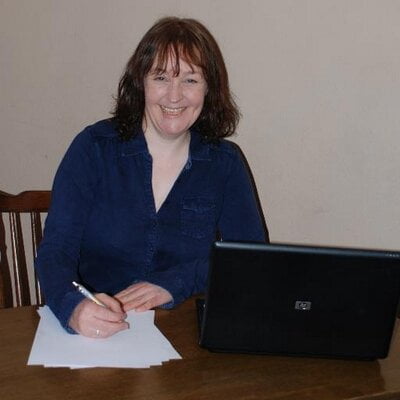
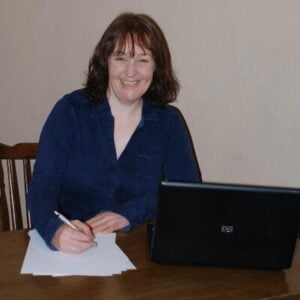
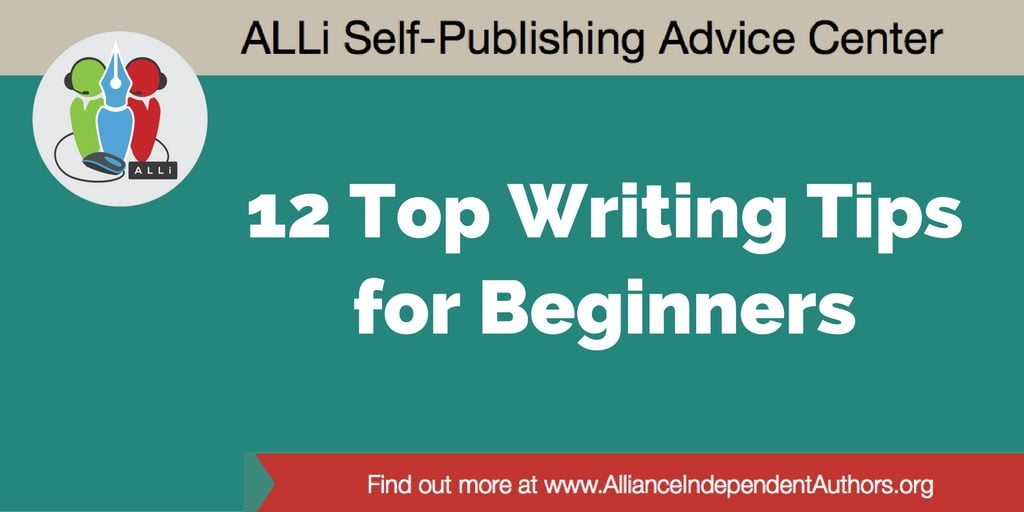
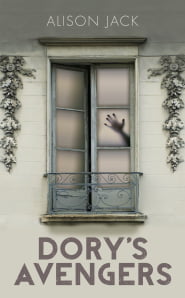
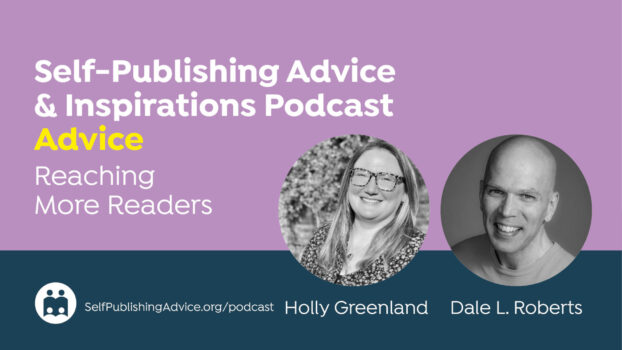


Hello Alison, Nice post. All these tips are really awesome. As a beginner, it will be helpful for me to write. Thanks.
[…] However, there are no hard and fast rules for writing. If you have the skills, you can master the craft anytime with some extra efforts. So, keep writing and practicing! […]
Good article
Thank you very much for the content
Thank for these great tips this could surely be useful.
Wonderful article for beginner writers to understand the basics of writing a blog. Thanks a lot for sharing.
Nice short article. I think it will help me to write my next article. Thank You.
[…] Best writing advice for beginners and those new to self-publishing from professional editor and novelist Alison Jack – will give confidence to newbie authors — Read on selfpublishingadvice.org/writing-tips-for-beginners/ […]
Nice short article. I think it will help me to write my next article. Thank You.
[…] However, there are no hard and fast rules for writing. If you have the skills, you can master the craft anytime with some extra efforts. So, keep writing and practicing! […]
I see you don’t monetize selfpublishingadvice.org, don’t waste
your traffic, you can earn extra bucks every month with new monetization method.
This is the best adsense alternative for any type of website (they approve all websites), for more details simply search in gooogle: murgrabia’s tools
Hello there, My name is Audrey and I am a fourteen year old who loves to write. I can whip up anything with given five words. I have been writing fictional short stories for a long time and my family and friends always tell me to publish them. I am not sure they are good enough for them to be published like a author’s story, but want to publish them as a collection of short stories. I also write many poems and want those to be published as well.
All of my pieces have a lesson, and a message to share to others. I want to publish them into the public, to share good things with people. I want my life to be remembered by people and have them love my stories and pass them on as well.
My main question is “How do I publish them into a collection of stories that people will read? Where can I get someone to read and edit my stories and then help me write them into a book?”
I would love to publish my stories but do not know how to. Any tips?
Thanks Alison for sharing these tips, I’m writing my book however it’s in English not on my origin language, could be that ok?
My favorite tip of yours is not to be too wordy. That’s my writing sin. Thanks for taking time and share your own experience with us.
[…] Source: https://selfpublishingadvice.org/writing-tips-for-beginners/ […]
Hi Alison,
It is indeed are a great tip on how to write and the content is engaging and I kept reading until the end. I have also written an article on blog writing tips which you may like to read about.
http://www.wonderkrish.com/2018/01/10-best-blog-writing-tips-for-beginners.html
Thanks
Thanks for this site, I am very new at writing, well… not very new since I started writing in the seventh grade and i am now a freshman in high school (yay). Thanks for the pointers and will try my best to include them,
This is really helpful thank you. I’ve just started writing a novel and was wondering how I could get in contact with an editor to read over my first few pages of my first chapter. If an editor could contact me on this address that would be amazing thank you again. [email protected]
[…] from it now. There’s lots of websites with advice for new authors getting started, and they often have good advice on the topic. Colleges don’t teach creative writing, though most offer classes on it. They just […]
[…] Tips by Self Publishing Advice Centre […]
” Only use ‘started to’ or ‘began to’ if the action which follows is not going to reach its natural conclusion. ”
Can you give me an example of when to use vs when not to use?
Thanks for the great tips, Alison!
I’m a school teacher of English Language & Literature and I’m crazy about writing! I maintain my blog, in which I write small stories and articles, but the idea of writing some great serious work appeared recently. Fortunately, I came across your advice! This is exactly what I needed thanks! I also wanted to advise the same newcomers as I in this area website http://www.creative-writing-solutions.com. A website offers a variety of ways to help get past the different causes of a writer’s block, such as fear, lack of ideas or lack of motivation. Sometimes it’s so necessary a breath of fresh air! I’m in love with this site! I also advise unicheck.com – useful plagiarism checker that makes your content unique. I am not kidding! As if you are in editing it’s always good to be reinsured your content is not plagiarized because you can do in even unconsciously and then have lots of troubles!
All the best!
” thank’s for that , give information that ,no any rules for writing a book “
Lol you just happen to come across this or was this your intention from the start trickster!! Lol
Hey, I’ve been reading through advice for quite some time now and I want to say that I understand it but I don’t really know how well my book reads. Would you mind looking at the first draft of my first chapter, https://amateurliteratureblog.wordpress.com/2017/06/16/chapter-1-of-my-novel-1st-draft/, and tell me what is wrong with it. If you find some time than it would be great but if you can’t waste any on a random comment I will understand. Have a nice day 🙂
Hi Robert,
I’m not an editor, but I wanted to give you a small piece of advice after reading the first few paragraphs of your story as linked above.
In the first paragraph I found myself adding in commas where I thought they should be. The first paragraph has a certain pacing which is obvious, but you there aren’t any commas at all, which makes reading it really confusing. For instance the first sentence reads: “He was five years old again though he could only remember it vaguely.” and I felt like it was supposed to read: “He was five years old again, though he could only remember it vaguely.”
As Alison points out in this article, you should try to avoid repeating words too often. In the first paragraph alone you have written the word “however” three times.
I hope this advice isn’t off putting, but you definitely need to go through your draft with a fine tooth comb. There are instances where you switch from past to present tense in the same paragraph too.
[…] 12 Top Writing Tips for Beginners […]
[…] 15. 12 Top Writing Tips for Beginners […]
[…] 15. 12 Top Writing Tips for Beginners […]
thanks Allison for your advice but the problem is that I don’t know how to put down my ideas.I actually finished a short story some time ago,but it was sent back to me by the publisher, He said it was not good.
I am sure these tips will serve for many beginners. When I feel a lack of inspiration or skills I make a call to this guys https://123customessay.com/writers. But this is a case of academic writing
I appreciate your writing tips. I’m just a little shocked that you recommend not writing a prologue or epilogue. I see them all the time in books I read and I happen to like having a little heads up about what is going to happen in the book. I also like a little more closure at the end of books. However, if avoiding them makes my writing tighter then I will take your advice.
I have find that and epilogues and prologues only work when they make you ask more questions rather than explain everything. For me the beauty of fiction is having so many questions about the world you read about at the start and then at the end you feel like a native inhabitant because of the information you gathered from random conversations or landmarks your character stumbles upon (pretty simple examples). A clear introduction to the book may answer some questions preventing you from discovering them through reading. And most of the time an epilogue just ruins what would be a perfect ending (which it should be). Wow sorry for being a bit chatty, just my two cents.
Hi Editor
I am starting a book and im looking for someone to send my manuscript to, to have a look, read and correct it.
it will be the first time I write a book, so we will see how it ends.
I often have great ideas but when I sit down at my computer, I just stare at the blank page and find that I have absolutely no clue of how I am to put my ideas in writing. I am often writing and deleting the first paragraph countless times and then I give up and get dissappointed in myself because I love writing and would love to actually finish a story.
Stop deleting and keep writing. Writing and editing are done by two completely different parts of the brain. Write first, keep writing, and write any old thing – just keep writing. Then you can go back to edit it later. Good luck and enjoy!
this is so me all the time gosh!
Alison thanks you for this article. I really grabbed on to your sentence: “Apart from the basics: grammar rules, punctuation, spelling, and sentence construction, there are no rules for writing a book.” Not because I am lazy and don’t want to learn writing techniques but because there is too much out there for sale to keep authors insecure and broke instead of writing.
Hey, i am looking for a writer who can walk me through my writing journey. i would appreciate if you can help.
Your advises are good i think i am not pro to say it so..
I want to write a book ,but i am afraid because i am still 15 and it may turn out not as good as i plan it to be .
I mean who will point out my mistake
Do not be afraid of trying. Alison has provided some valuable information here and I believe you will do well. If you’re concerned about how successful you might become, do a little research and you will certainly find you are not the first person under the age of majority to begin their writing career. For example, the author of the Captain Underpants books has an interesting background.
Good luck to you and everyone else, Grelly!
Thank you Alison for the informative tips and advice you have shared. 🙂
Its not really about someone pointing out your mistakes but just practising the craft. I set up a blog on which I occasionally upload my work to get advice from people. No one visits it yet but I guess it’s a start. Doing something and failing is better than not doing anything at all.
Good ideal . Thank you Alison for great idea.
Well that’s the thing, sometimes real life has minor character’s as well. I also from time to time switch between past and future tense. Am I a bad writer for it? Of course not. It depends entirely on the individual story and it’s own needs.
If you’re editing your work to be like every other story, you’re doing your work a disservice.
[…] 12 Top Writing Tips for Beginners https://selfpublishingadvice.org/writing-tips-for-beginners/ […]
Book writing is changing: Read this gem. (Take a lovely trip down memory lane with me). The beleaguered postman menaced by a pack of thuggish dogs; the man who decides if he can’t have a convertible, he’ll just make one; and the chaos that ensues when three madcap Northern Irish teens are loosed upon the city of London. All of these await you within this memoir, each woven in alongside harrowing tragedy as a poignant reminder of how life goes on even in the most unforgiving of circumstances. [email protected]
http://www.amazon.co.uk/Belfast-Laughter-1957-1977-Alan-Croft/dp/1634134095
Thank you for sharing. I love those descriptive lines! As a newbie on the block, I realize I’ve got to do a lot of reading how other authors do it. Many thanks Allison for all your tips!
Thank you, for this ! I think this is exactly what I needed. I’m rather glad I have attended this online conference.
[…] Writing Tips for Beginners by Alison Jack […]
I love writing but I want to know that if I start writing, what should I write on? I mean writing on a simple book, notebooks, pieces of papers? And should i write on both or one side only?
Please help!
I prefer to write little notes and ideas on paper or in a notebook using one side of the paper, but I suggest typing the drafts for a number of reasons. Your hand won’t get tired, your handwriting can’t be sloppy (let alone unreadable), you don’t have to spend extra money on paper and writing utensils, and you can always go back to edit or change things.
[…] starting a blog, you may soon find yourself moving beyond your original intent. I suggest you learn 12 top writing tips for Begginer […]
Thanks for sharing great information . I am not a book writer but I am a blog writer your information really helped me . I have bookmarked your page to learn more from you .
A good writer can also make good money writing for others or blogging for money .
Beginners writing classes lessons
Great tips for beginners, Alison, I published one book and I am writing my second, and now I will be more aware of these traps. Writing is hard work! Other good advice I would add: Get a copy editor to do a final proof, it will be worth the cost. Use a creative designer for the cover and interior, it will amaze your family and friends and help sales tremendously (I used DesignbyIndigo). Don’t skimp on printing costs, or the book can look cheap.
My overused words are ‘and’ ‘now’ ‘then’ and ‘but’. One of the last self-edits I do is to highlight them, and if I find there are too many, I cut them out or replace with another word.
That is an excellent idea. Otherwise, how would you become aware of something you didn’t realize you were doing. Clever.